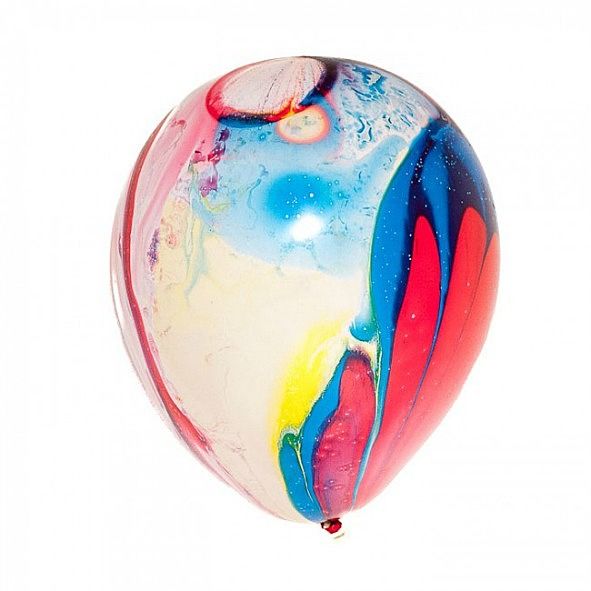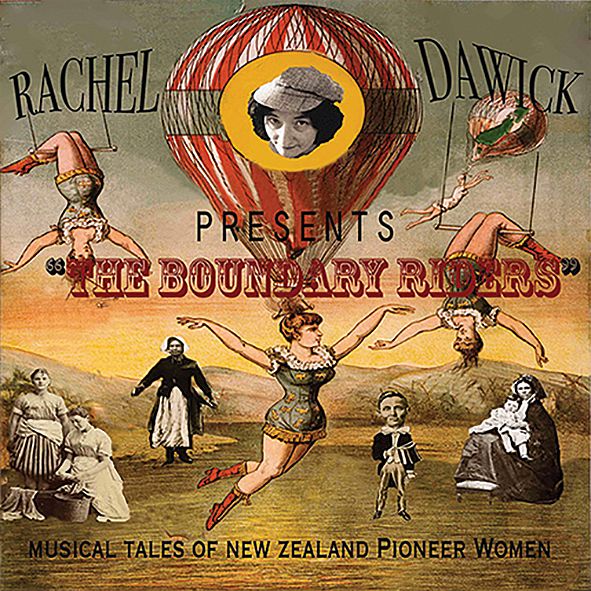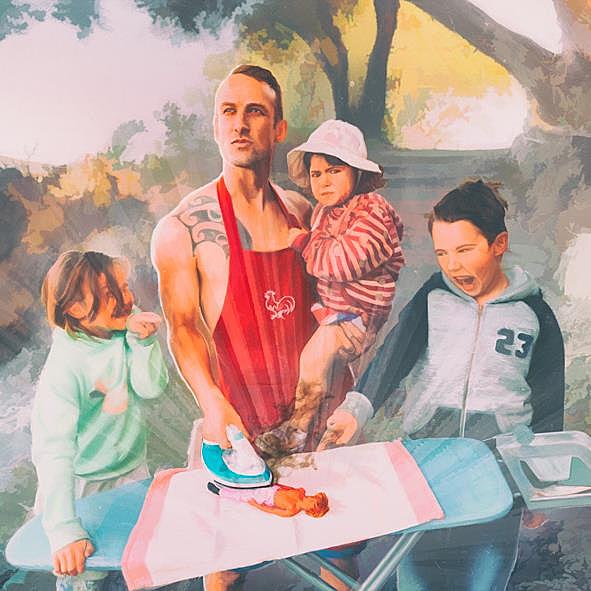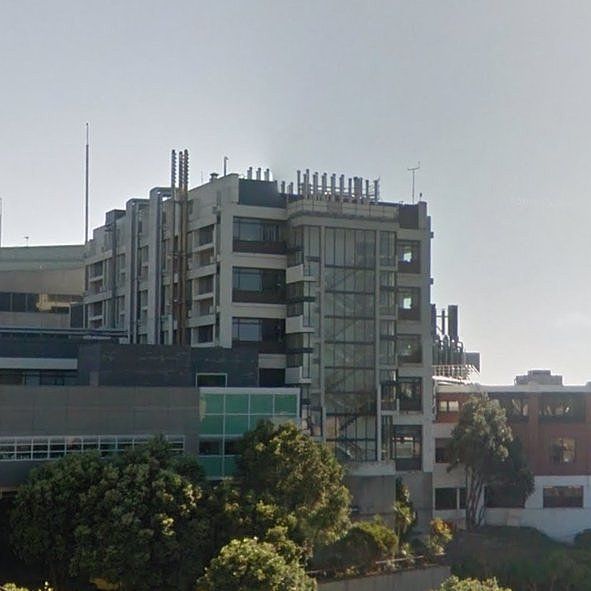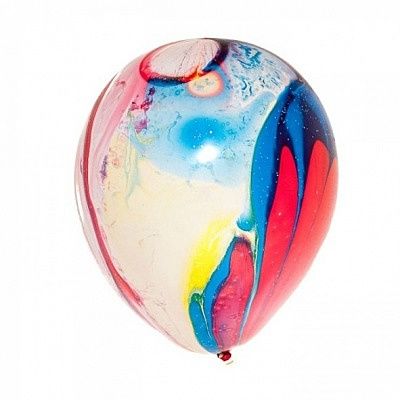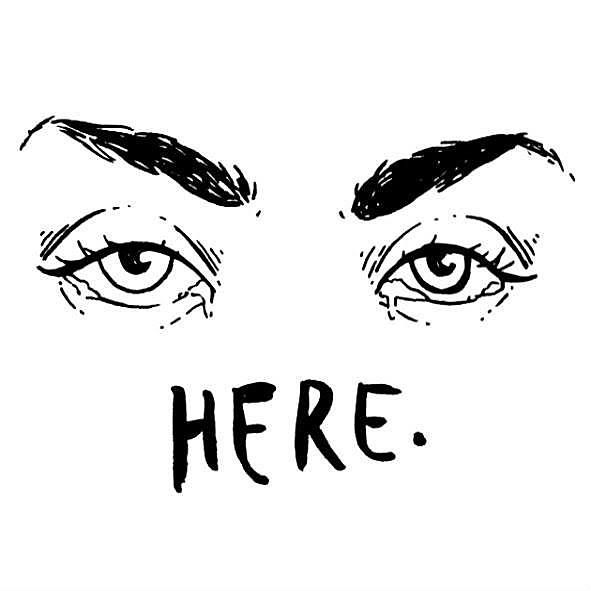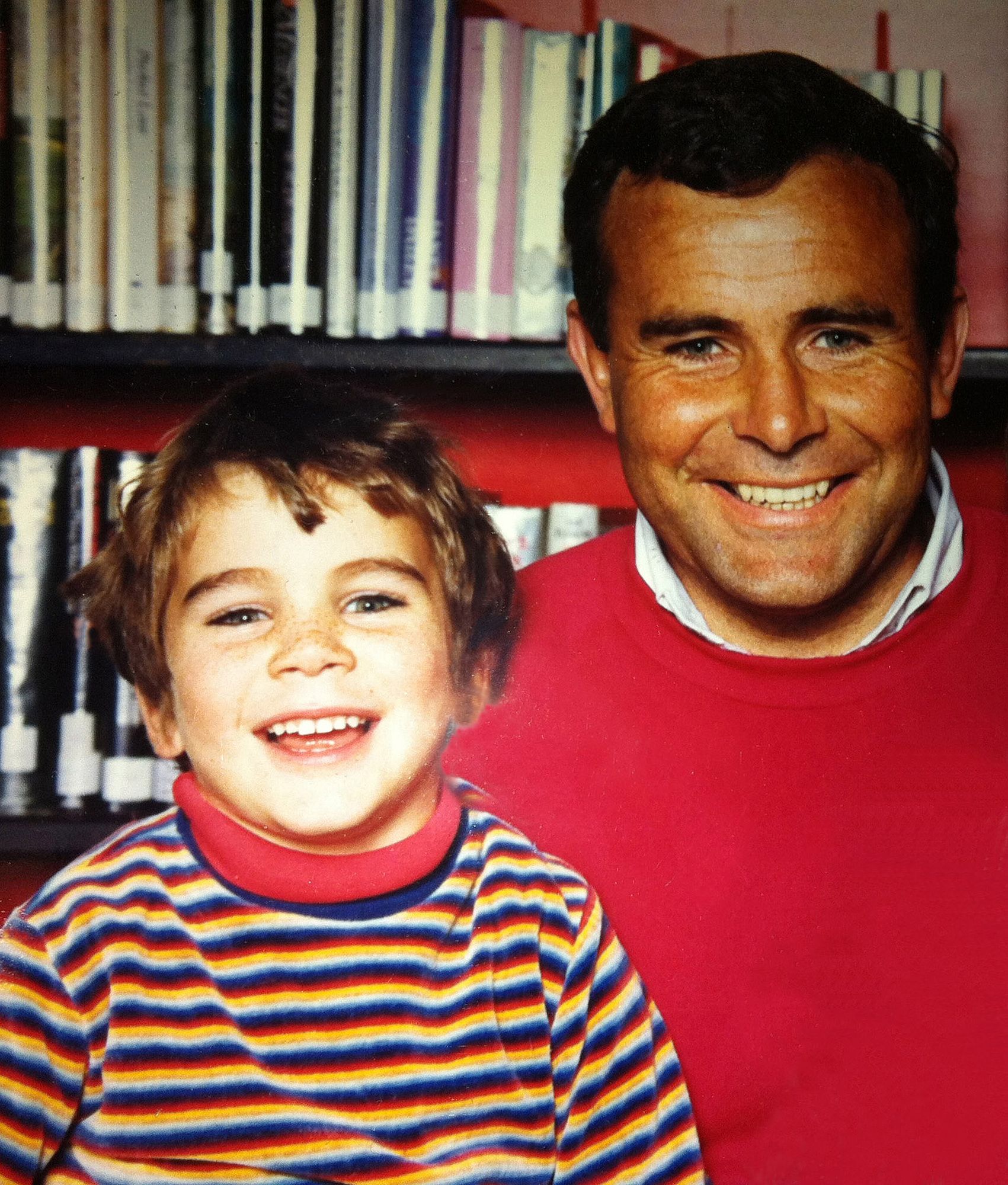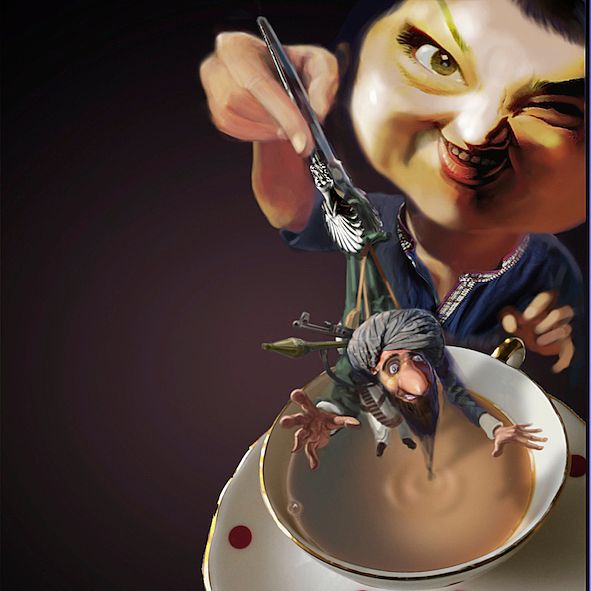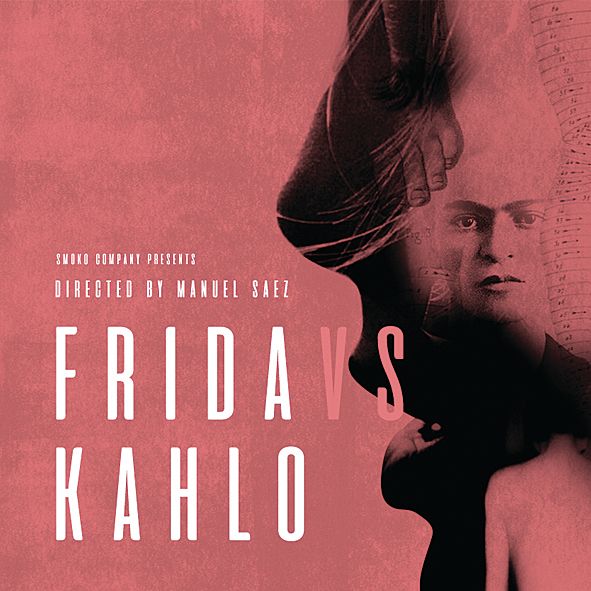The New Zealand Fringe Festival 2017: The Final Week
We've reached the home stretch of the New Zealand Fringe Festival: international Fringe stalwarts like Jon Bennett and Sameena Zehra taking the stage, Victoria University's YOUR FAV programme is opening, and the Fringe Awards are waiting at the end. Our Fringe review team take it all in.
We've reached the home stretch of the New Zealand Fringe Festival: international Fringe stalwarts like Jon Bennett and Sameena Zehra taking the stage, Victoria University's YOUR FAV programme is opening, and the Fringe Awards are waiting at the end. Our Fringe review team - Adam Goodall, Shannon Friday, Matt Loveranes, Mia Gaudin and Fiona McNamara - take it all in.
New Zealand Fringe Festival, Week Three (Friday 24 February to Saturday 4 March): The Shows
The Boundary Riders
DILF
Maggot
Super Clean
Maybe Laby Fugue
Colour Me Nostalgia!
From The Ground Up
My Dad's Deaths (A Comedy)
Sameena Zehra's Tea with Terrorists
Alayne's Cat Safari
Frida vs Kahlo
Deep Space Naenae
The Boundary Riders
Rachel Dawick’s a beautiful folk singer with a crisp and plaintive voice and a slight smile. She gives The Boundary Riders, her song suite about six working class women - gold panners, fraudsters and washer-women - an earthy authenticity; she sings like she’s commenting on past lives. Her lyrics recall untold stories of colonial New Zealand, travelling troupes and isolated missionary stations; with a light bounce, she understates the tragedy and comedy of these long-gone lives. They’re great songs, but The Boundary Riders feels like the least interesting way to present them.
Dawick breaks up her song suite with stories about her research. She has travelled up and down New Zealand to learn the larger-than-life tales behind women like cross-dressing con-woman Amy Bock and acrophobic tight-rope walker Jane Whiteside. It’s not an inherently uninteresting way to frame the music, but Dawick’s an awkward and unpolished storyteller, bunny-hopping into punchlines, umming and ahhing her way through salacious drama, and generally relating these women’s lives as if she’s remembering them as she goes along. These songs are crying out for some theatre to link them. The Boundary Riders isn’t that theatre. -- AG
BATS Theatre, Friday 3 to Saturday 4 March
For more information on The Boundary Riders, go here.
DILF
DILF had promise. Its premise was exciting: actor and writer Ben Powdrell tells us his deepest, darkest secrets while his real life wife, Francesca Carney, heckles him from the lighting desk, holding him to task. Powdrell begins with some light comedy and a box of cookies passed around the audience, hinting that they might be “special.” What starts as an easy watch soon heads into riskier material. I’m drawn in by Powdrell’s retelling of the time he cheated on his wife: this dynamic, with Carney heckling a story that must be invasive for her too, could really go somewhere...
...but Powdrell never lets his guard down, presenting the story as if he’s still the set-upon hero and missing a prime opportunity to show true vulnerability. This is a recurring pattern: material about serious topics like gender, sexual identity and child sexual abuse, drawn out then dumped without thought or interrogation, merely played for laughs, which brings me to the most self-congratulatory, most upsetting part of DILF.
To finish the show, Powdrell tells us about his sexual encounter with a person he meets in a gay bar (it is not made clear what this person’s gender identity is, but Powdrell leads us to read them as a transwoman). Powdrell’s story - in which he acts as though there’s something fundamentally wrong with the person he’s taken home and proudly proclaims that his giving a blow job to the person in question is a “service” to all LGBTQI* people - is arrogant, hurtful and textbook transphobia. Powdrell’s bit actively and callously dehumanises trans people for the sake of his own ego, without any care for the transphobic culture around him or for the audience he’s playing to.
This isn’t about not being able to ‘take a joke’. Look back at the material DILF plays for cheap laughs and you’ll see tough topics that must be dealt with responsibly and with integrity. As an artist, you don’t get to decide that your audience should just ‘take the joke’: you have to take responsibility for what you’ve made and what it means to them. A responsible artist questions and interrogates their material in order to ensure that they’re not needlessly hurting anyone. Not to do this is lazy. It’s poor artistic practice. It alienates your audience and sends them home feeling horrible. -- FM
BATS Theatre, Wednesday 1 to Saturday 4 March
For more information on DILF, go here.
Maggot
Maggot is the newest product of The Baby Girls - Angela Fouhy, Elle Wootton and Freya Finch - and their first production in Wellington, following their premiere in Melbourne in 2016. It is a bizarre mishmash of pop, clown, postfeminism and 90s girl band, and it’s had me laughing for days.
Maggot starts as a series of dance numbers parodying British pop stars, with their English accents, aloof attitudes, ridiculous sparkly jumpsuits and sullen pouty poses. What begins as a potentially-tiring play on pop tropes soon morphs into the surreal: the sassy pop stars transform into a series of unexpected characters including frolicking, pipe-playing leprechauns and a cheeky interpretation of Katy Perry. The clown-trained performers are well in tune with their audience, building a relationship with us even before the show begins, joining in with our pre-show chit chat and guiding us from the box office to the main venue. They build on this throughout, giving audience members small tasks, like pulling party poppers, with the effect of letting us in as part of creating the lively fun atmosphere. The Baby Girls work hard to keep us entertained and clearly delight the whole room with their playful clowning; we’re all in stitches. -- FM
Studio 77, Tuesday 28 February to Saturday 4 March
For more information on Maggot, go here.
Super Clean
The story in Super Clean is well-written and pretty simple. Jude (an incandescent Keegan Bragg) is a lonely boy/young man playing with himself (in every sense of the word) in his clubhouse as he relives the relationship with his girlfriend Jess. But Super Clean makes itself electric using its audience in remarkable and inventive ways to make a familiar story fresh and live.
Right from the get-go, our relationship with Jude is bound by rules: speak only when spoken to, when I say “sorry,” you say, “It’s OK”, and don’t open the closet. These rules also apply to the onstage vaudeville musos (Peter Scriven and Ben Wilson), whose acquiescence encourages us to play along. Jude then asks various audience members to take on playing Jess, always limited by the rules. Together as Jess we struggle to keep the boundaries, until Jude, feeling a little too vulnerable, changes the rules on us. It sculpts a fraught relationship between Jude and the multiple Jess, even as we as an audience trust Jude’s rules to keep our interactions safe and comfortable.
And then the show takes all these rules, all these interactions, and with a slow, beautiful and sincere interaction, explodes them. It’s bold, sad, and fearless look at what happens to a relationship when being safe is valued above being vulnerable. - SF
Studio 77, Tuesday 28 February to Saturday 4 March
For more information on Super Clean, go here.
Maybe Laby Fugue
Maybe Laby Fugue plays out on a literally epic stage. While the voices of two women (Izabelle Brown and Nino Raphael) are heard by the dispersed audience, ‘their bodies’ (Raicheal Doohan and Pauline Ward) are more than 100 meters away inside a giant glass stairwell, interacting with a man with a walkie-talkie (Reuben Jensen). The result is jarring, dislocating, dissociative even; we ricochet between the immediate voice and the far-off body, searching for some link between the two.
The performers occasionally struggle with the scope of the staging, though. Brown and Raphael talk with a false lightness that, along with the simplistic language of the text (a translation of Barefoot Fugue by experimental Japanese theatre maker Ohta Shog), emphasizes the mundanity of the words at the expense of clarity or significance. In addition the bodies’ detailed and fully extended movements are sometimes upstaged by folks walking between the audience and performers.
Still, the staging encourages me to dig for meaning in the obscure absurdist text: What is the significance of the shoes? Why are the women split between body and voice, but the man whole? Maybe Laby Fugue offers few answers, only oblique images and inter-relationships. It uses the literal chasm to point at many potential metaphorical gaps, in conversation, presentation, and communication. -- SF
Meet at 77 Fairlie Tce, Kelburn, Tuesday 28 February to Saturday 4 March
For more information on Maybe Laby Fugue, go here.
Colour Me Nostalgia!
Colour Me Nostalgia!follows the development of Will (Matthew Staijen-Leach) and his imaginary friend (Sarah Burton) as Will grows from child to teenager. While the show draws on childhood memories, they are not recollected with any specificity. With only cliché and generalities (about his first love interest, Will exclaims: “she takes my breath away!”) there is nothing for the audience to grab hold of – there is no nostalgia to be had in the lazy writing, and certainly no breath being taken away.
If anything saves Colour Me Nostalgia!from turning into a mess of rag-tag cardboard sets and two-dimensional characters, it’s the show’s sense of play. Burton and Staijen-Leach give strong physical performances, and there are moments of circus-like entanglement between the two as they play-fight and master detailed secret handshakes.
Still, Colour Me Nostalgia!doesn’t venture forth and explore any of the deeper themes it raises. Will and his imaginary friend’s discovery of their own and each other’s ‘private parts’ moves toward an exploration of bodies, gender and sexuality, only to be derailed by a play marriage between Peter Pan and Wendy. Sigh. A lost opportunity for interesting conversations, overtaken by an easy jaunt through a boring, generic adolescence. -- MG
77 Fairlie Terrace 28 February – 4 March
For more information about Colour Me Nostalgia! go here.
Correction: This review previously incorrectly referred to Ruby Hansen as one of the performers. Sarah Burton is the other performer; Ruby Hansen is a co-director and deviser.
From The Ground Up
Women Aren’t Wolves’ From the Ground Up is a thirty-minute melding of poetry and physical performance. A woman (Bethany Miller) sits in distress, coiled into herself; three nymph-like creatures then emerge, guiding her through a delicately-choreographed ritual of transformation. Poetry reverberates from low-quality speakers during this ritual, informing their movement with grace. When her transformation is complete, the woman stands content, “a small thing in the calm universe. I am cool. I am okay.” It’s a woman’s rebirth from a time of darkness.
Or at least, that’s what it looks like. It's hard to be sure.
While it’s not hard to intuit from Women Aren’t Wolves’ previous work that From the Ground Up is exploring mental illness, it’s vague enough to project any journey of personal growth. The poetry is stirring, evoking feelings of sadness, anger, defeat and eventually triumph. The physical story, however, barely matches their intensity. Their graceful flailing never pushes the performers to the limits of their bodies and struggles to articulate the poetry’s power and darkness. The consistent ethereal tempo keeps Miller’s emotional journey at arm’s length from us, too, stagnant and earthbound. There's ugliness and vulnerability underneath, waiting to be unearthed; for now, though, From the Ground Up is merely pleasant. -- ML
The Preservatorium, 45 Webb Street, Monday 27 February to Wednesday 1 March
For more information on From The Ground Up, go here.
My Dad's Deaths (A Comedy)
Jon Bennett is an affable heartbreaker. An international award-winning storyteller and comedian, he’s the kind of guy you’d banter with at a BBQ till the sausages are cold. My Dad’s Deaths (A Comedy) is his redemption song.
Following the success of his blog/touring show/gallery exhibition Pretending Things are a Cock, and the utter disappointment and lack of engagement from his dad (he wanted Bennett to be a bush poet), Bennett sets out to mend that relationship. The result is a hilarious homage to his father, structured around all the moments in his life that Bennett’s heart dropped thinking his dad had died.
It’s a sparsely-designed one-man show, just a powerpoint projection, a wooden log and pink bunny ears on stage with Bennett as he tears through a variety of childhood memories and family stories, everything from shark attacks to choking on soda bubbles on the way to the footy. The space is full of popping energy and Bennett Junior’s characterisation of his father makes it feel like the old man is right there, yelling his feelings. The show climaxes with the manipulation of our shared emotional investment in the father/son relationship, as Bennett pulls off a double plot twist that leaves the audience in rapturous alarm.
Later that night, Bennett and I right-swiped each other on Tinder. I told him he made me cry. Bastard. -- MG
BATS Theatre, Sunday 26 February to Wednesday 1 March
For more information on My Dad's Deaths (A Comedy), go here.
Sameena Zehra's Tea with Terrorists
You can’t easily tell from her chill demeanour, but Sameena Zehra has seen some shit in her life. In Tea with Terrorists, she takes us on a one-way trip to Kashmir by way of London, regaling us with perilous tales of civil unrest, Kalashnikovs and several near-death experiences – and those are just her brushes with terrorists. Wait until she gets to her grandmother.
Zehra is a spellbinding storyteller, lovingly drawing on her eccentric Srinagar-based family to paint a vivid and tender picture of a culture where violence and terror is just a part of everyday life. It’s a world where terrorists turn up at your door like Jehovah’s Witnesses and where ducking under your car to avoid a barrage of flying bullets is a common pit stop. Her delivery is smooth and steady, delightfully luxuriating in her memories before casually dropping punchlines or truth bombs. She keeps her audience firmly abreast as she nimbly navigates through religion, bureaucracy, class, poverty and corruption to unveil surprisingly humorous and human layers to some of Kashmir’s most wanted.
At its core, however, Tea with Terrorists is an uproarious paean to all the staunch and vibrant characters who helped mould Zehra into the fearless person she is today, all of whom have known fear so intimately and won. Hearing their stories, it’s no wonder she’s so chill. -- ML
BATS Theatre, Saturday 25 to Tuesday 28 February
For more information on Sameena Zehra's Tea with Terrorists, go here.
Alayne's Cat Safari
We meet in Carrara Park, Newtown, where we are greeted by local cat enthusiast, Alayne (Alayne Dick), who is pumped up ready for a cat safari. She marches us out of the park and through the streets of Newtown to various cat “hot spots.” The tour is interrupted along the way by her sponsor, Al (Johnny Crawford), and the competition: Maria (Maria Williams), who aggressively hands out flyers for her competing tour, Maria’s Cat Expedition.
I was very excited to see this show: shows outside theatres are a real high point of the Fringe Festival and a cat safari is an awesome fresh idea, full of potential. Similarly, it was clear that most of the audience was there for the cats, but unfortunately it didn’t feel as though that was what the show was really about. The walking tour felt more like a vehicle for a character-driven narrative, that wasn’t nearly as original or interesting as the premise. While Alayne Dick holds the show well with her infectious energy and enthusiasm and her ability to respond to quickly to most of what audience throws at her, I didn’t believe that she was truly as interested in cats as the set up had led me to believe. Throughout the performance, she hurried us on, and it was audience members who would stop her to point out all the cats we were bulleting past.
I would love to see a redevelopment of this show that really explores its own premise and finds a way to make a show about cats, focus on the cats. -- FM
Carrara Park, Newtown, 17-20 and 26 February
For more information on Alayne's Cat Safari, go here.
Frida vs Kahlo
The opening night of Frida vs Kahlo buzzed with the chatter of quick Spanish consonants: the sold-out show saw Wellington’s Latin American population out in force – there is clearly support for theatre from this growing community.
Frida vs Kahlo does not present Frida as we know her. There is no vibrant Mexican costuming, no floral wreaths, no monkey, no mono-brow. Instead, the beautifully designed set is monochromatic, situating a young Frida Kahlo in extreme pain (following her near paralytic trolley-bus accident) and in the process of nursing herself out of her bed and into the enigmatic painter so often misrepresented at Halloween parties. There are two performers, Frida and Kahlo, representing this process of transformation – however, the relationship between the two is not abundantly clear, creating a kind of magical realism (read: confusing) effect as the audience tries to decipher the link between the two - all at once they are nurse and patient, argumentative lovers, and ultimately, Frida Kahlo’s split personalities.
The script and the performance is highly emotional, to a point where the lack of light relief creates a monotony that holds the audience in a suspended tension, with no satisfying resolution. While Anastasia Dolinina’s performance is all eyes, it is Cecilia Monteagundo’s physicality that is most captivating – her near bursts into dance offer promise of non-verbal communication that could be the missing link to more effectively telling this story - there’s a necessary catharsis that isn’t resolved through the verbose script. -- MG
Newtown Community & Cultural Centre, 7 Colombo Street, Friday 24 to Sunday 26 February
For more information on Frida vs Kahlo, go here.
Deep Space Naenae
NB: This review is based on the pilot episode of Deep Space Naenae, which played from 1pm to 2pm on Saturday the 25th of February.
The year is 2117 and Kickin’ Rad Productions invites us aboard Deep Space Naenae, an improvised soap opera-cum-space saga played out over ten episodes across ten hours.
Playing the ship crew, politicians and scoundrels who all live the titular space station, the improvisers that make the strongest mark from the jump are the ones offering up clearly-defined, larger-than-life characters. It’s easy to care for Dianne Pulham’s Fisher Paykel, a doctor who harbours a secret identity, or Christine Brooks’ overbearing, reliably funny ambassador. They’re confident and propel the drama forward; other, less-intuitive castmates have a harder time fitting their characters into the story being told, leaving narrative dead air that regularly kills the momentum.
The cast is most comfortable riffing on established genre tropes - crimes, secret families, political ambitions - and there’s more than enough quick wit among the performers keep the show fresh and funny. This is only the pilot, though; it’s not hard to see Deep Space Naenae getting sharper, more intricate and engrossing as it goes along. -- ML
BATS Theatre, Saturday 25 February
For more information on Deep Space Naenae, go here.
